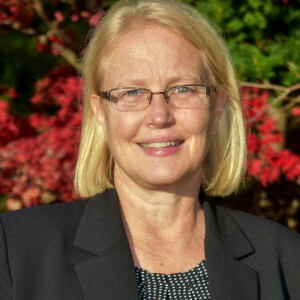
ESF President Joanie Mahoney
Dear ESF alumni, friends, and supporters,
Our lives revolve around what we “know.” We make decisions, deny falsehoods, and improve our world with knowledge. Creating this knowledge is the nucleus around which higher education spins. Much of this knowledge blossoms in the classroom, where ESF students learn and grow through their academic coursework and interaction with influential faculty.
ESF takes knowledge creation one step further. We also conduct research that is rooted in the fundamental desire to “improve your world.” Our faculty and students accomplish this through investigation and analysis directed at solving society’s most pressing issues. Some of the world’s most respected researchers are at ESF. They are committed to finding solutions for problems that hinder progress around the corner and around the globe. Research conducted at ESF also serves as an economic engine, frequently producing results that lead to new or improved technologies, pioneering products, and the re-imagining of processes and industries that stimulate economic prosperity.
In all cases, the research conducted at ESF supports and furthers our goal to sustain the environment. ESF is one of the only institutions dedicated exclusively to stewarding our planet’s future. Over the course of the last year, ESF researchers submitted four new technology disclosures; issued one patent; licensed two technologies; and were involved with more than 200 projects that exceeded $15 million in research expenditures. In this issue, I am pleased to introduce you to some of ESF’s leading researchers to hear why they chose to do their environment-bolstering work at ESF.
Researchers like Drs. William Powell and Rebecca Rundell have visions for our planet that restore icons: Dr. Powell is reintroducing the towering American chestnut to the East Coast, and Dr. Rundell — at the other end of the scale — nurtures the nation’s only known colony of Chittenango Ovate Amber snails. Drs. Hyatt Green and Brian Leydet accepted the coronavirus challenge, identifying options that set protocol around the state. Clean water is necessary — for our health and for the planet’s future. This issue highlights some of Dr. Greg Boyer’s accomplishments, whose interdisciplinary work explores harmful algal blooms. Also deepening our understanding of coronavirus’ power, Dr. Mary Collins exposed the relationship between air pollution and mortality rates associated with the virus. And, in all cases, this knowledge is conducted in partnership with graduate students, an opportunity for tomorrow’s scientists to work elbow-to-elbow with today’s influencers.
In some circles, the success of an institution’s research program is considered a key indicator of the sophistication of a university and is used as the yardstick by which academic reputation is measured. As you read through this issue, I hope you agree that ESF’s research initiatives place it among the most notable colleges in the nation.
Sincerely,
Joanie Mahoney
President
READ: Joanie Mahoney Becomes ESF’s Fifth and First Women President


